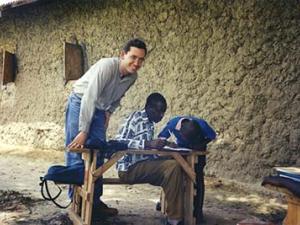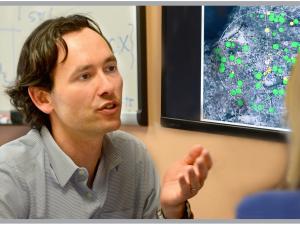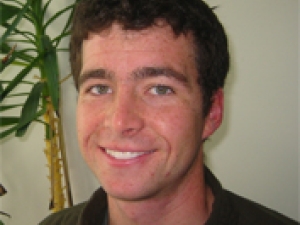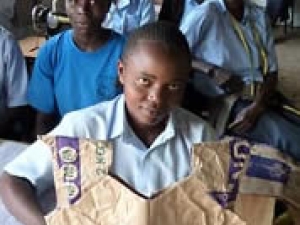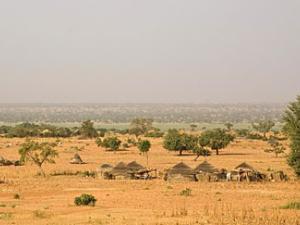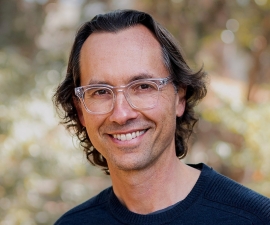

Research Bio
Ted's main research focus is African economic development, including work on the economic causes and consequences of violence; the impact of ethnic divisions on local collective action; interactions between health, education, environment, and productivity for the poor; and methods for transparency in social science research. He has conducted field work in Kenya, Sierra Leone, Tanzania, and India.
Research Expertise and Interest
Africa, education, development economics, human capital, health, ethnic divisions, social capital, civil conflict, war, pre-analysis plans, water
In the News
Watch an Economics Professor Explain Foreign Aid in 101 Seconds
Researchers and Students Gather in Sproul Plaza To ‘Stand Up for Science’
James A. Robinson, a New Nobel Laureate, Left Lasting Impact at Berkeley
Pandemic caused ‘staggering’ economic, human impact in global south, study says
Treating children for worms yields long-term benefits, says new study
COVID-19 in the global south: Economic impacts and recovery
Nine faculty elected to American Academy of Arts and Sciences
Africa faces grave risks as COVID-19 emerges, says Berkeley economist
Economist Ted Miguel awakens to Nobel Prize dream — well, almost
New Opportunity Lab to focus on policy for poverty, inequality
Study finds climate change will reshape global economy
The average person will suffer economic harm, often dramatic harm, by 2100 if climate change continues on its current course, new research shows.
The Economics of Change
Philomathia Innovation Seed Fund recipient Edward Miguel applies the tools of economics to such social issues as access to affordable energy and the possible links between climate and conflict.
Warmer climate strongly affects human conflict and violence worldwide, says study
Shifts in climate are strongly linked to human violence around the world, and according to a new study by researchers at the University of California, Berkeley and Princeton University, even relatively minor departures from normal temperatures or rainfall can substantially increase the risk of conflict.
Treasury official who spotted $2 trillion error is recent economics Ph.D.
John Bellows may not have the household-name recognition of Timothy Geithner, Ben Bernanke or Christina Romer. But the U.S. Treasury Department’s acting assistant secretary has generated widespread buzz in finance and policy circles since finding a $2 trillion error in the Standard & Poor’s (S&P) calculations it used to support a historic decision to downgrade the nation’s credit rating.
Symposium to report ROI on programs investing in girls
Positive outcomes and lessons to be learned from new approaches to help girls and women struggling in developing countries will be explored at an April 28 symposium to be hosted by the Center for Evaluation of Global Action (CEGA), based at UC Berkeley.
Climate change could boost incidence of civil war in Africa, study finds
Climate change could increase the likelihood of civil war in sub-Saharan Africa by over 50 percent within the next two decades, according to a new study led by a team of researchers at University of California, Berkeley, and published in the online issue of the journal Proceedings of the National Academy of Sciences (PNAS).


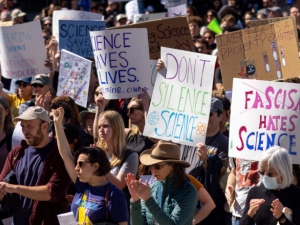
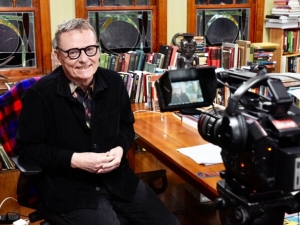
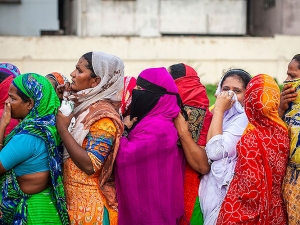
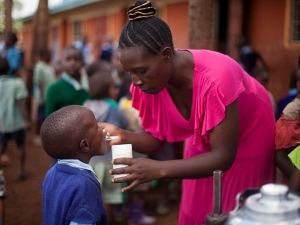

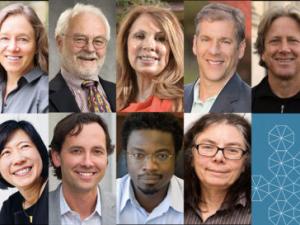
![The driver of a motorcycle taxi in Kenya wears a makeshift mask to protect against the COVID19 virus. [AP photo by Patrick Ngugi]](/sites/default/files/styles/news_teaser_thumbnail/public/2020-04/AP_Africa_taxidriver_mask_200330-410x273.jpg?h=9d4b272d&itok=vl9Ye6ns)
